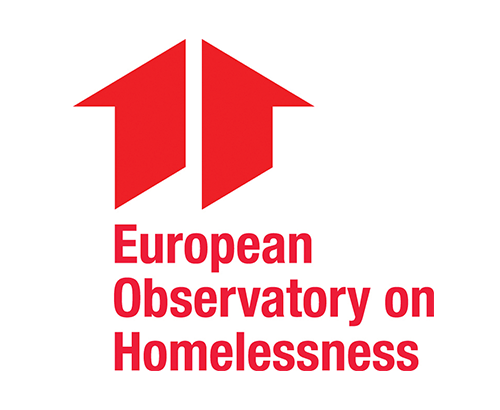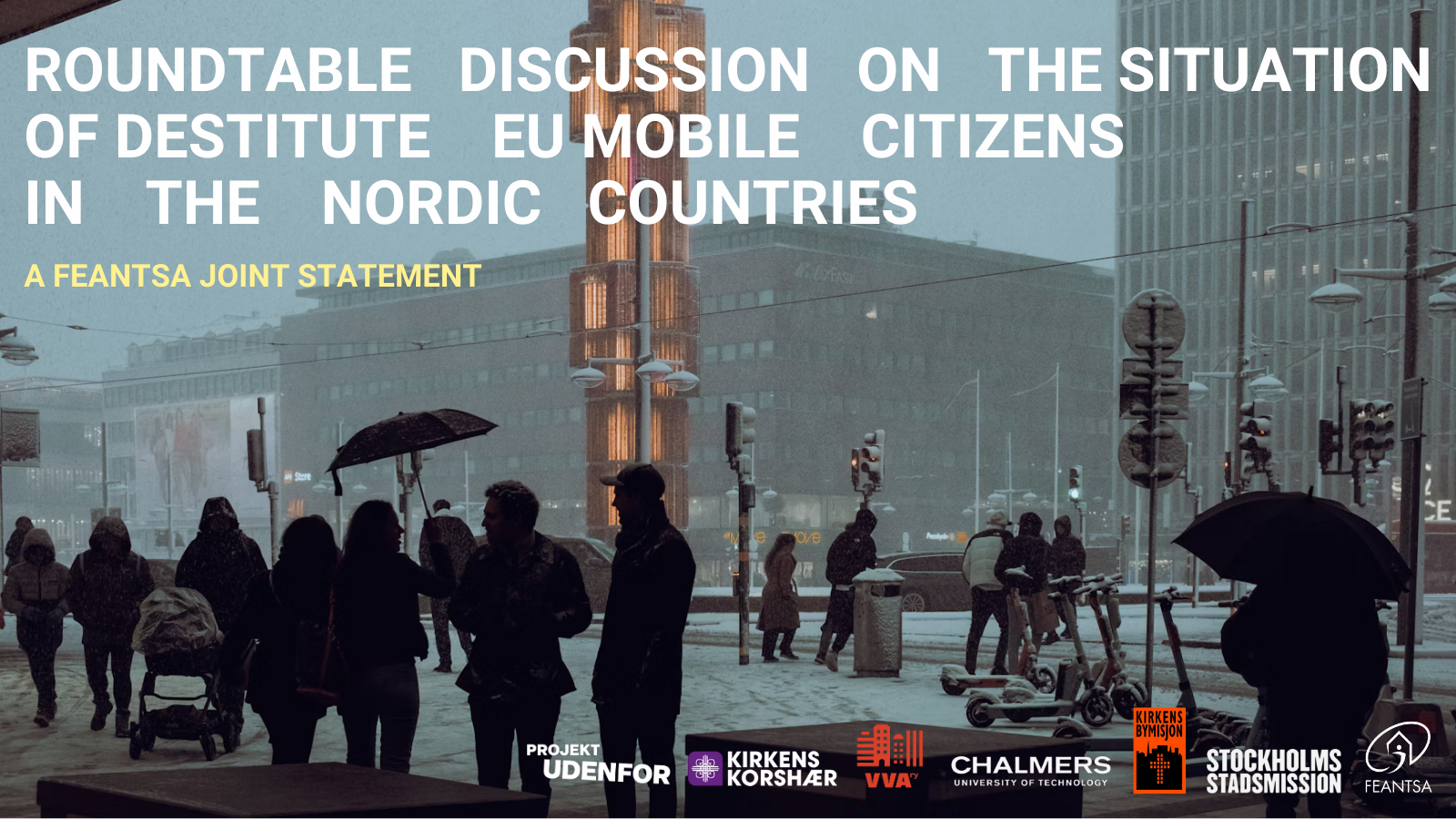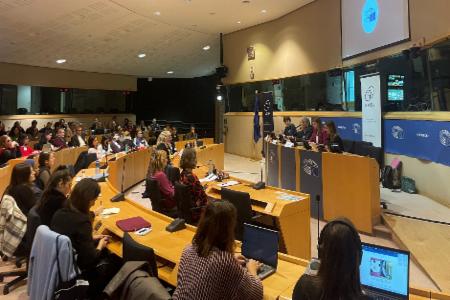Roundtable discussion on the situation of destitute EU mobile citizens in the Nordic countries, 21st of August 2024
Hosted by Stockholms Stadsmission & attended by representatives from VVAry, Kirkens Bymisjon, Projekt Udenfor, Kirkens Korshær & Chalmers University of Technology
Download the brief here
On August 21, organisations from Norway, Finland, Denmark, and Sweden met in Stockholm to discuss the challenges faced by mobile EU citizens experiencing homelessness in the Nordic countries. During the gathering, participants identified and discussed the obstacles, best practices, and politics related to the ongoing efforts to promote, defend, and enhance the rights of destitute European citizens in each respective country.
Although freedom of movement is a fundamental right within the EU, it was made evident during the discussion that many mobile EU citizens across the Nordic countries lack access to essential services such as shelter, sanitation, and basic healthcare, which countries are obliged to provide under the European Social Charter. This gap between the avowed rights of EU citizens and the reality of their exclusion from social services, leaves many EU mobile citizens destitute and further marginalized. This situation is being made worse by a trend towards the criminalization of poverty through legislation such as making sleeping rough punishable by fines and through begging bans. While the challenges and contexts differ in each country, the overall findings were often very similar across the four participating countries.
Key takeaways from the Nordic context:
- Lack of shelter: There is a shortage of both dignified and year-round emergency accommodation and long-term housing for destitute individuals.
- Limited access to sanitation and healthcare: Many mobile EU citizens struggle to access showers, sanitary facilities, and they do not receive adequate healthcare.
- Complicated registration systems: Complicated legal frameworks and burdensome criteria make it difficult for destitute mobile EU citizens to access essential services to which they have the right.
Despite the obligations under the European Social Charter, basic rights of EU citizens are not being met across the Nordic countries. As a result, NGOs are left with the responsibility to provide essential services, often with little to no public funding. While many organisations are making impressive efforts, this is not a tenable solution. In all four countries, organisations are regularly forced to choose which basic services they provide, as limited funding & resources prevent more comprehensive and concerted efforts.
While participants highlighted several key areas for improved interventions and responses, three primary suggestions were highlighted:
- Improved access to basic services: Nordic welfare states must take responsibility for the situation of destitute EU citizens experiencing homelessness and ensure the support and care they need within the social welfare systems. It must be made easier for destitute EU citizens to access essential services quickly and comprehensively.
- Better knowledge and research: There is a need to better understand the realities and specific vulnerabilities EU citizens face on the ground. There is an acute need for up-to-date research and statistics with regard to the numbers, demographics and conditions of destitute mobile EU citizens across the Nordic countries, with a focus on understanding their most pressing needs. Additionally, there is a need to also research the socioeconomic benefits of providing destitute mobile EU citizens with access to social rights, such as access to shelter/accommodation, safety and hygiene in addition to advice, guidance and support in relation to Nordic labour markets.
- Combating criminalisation: As an overrepresented group among those forced to sleep on the streets, mobile EU citizens are often criminalized by policies prohibiting them to conduct activities in public space. To combat this criminalisation and to protect the fundamental rights of people experiencing homelessness, we support the adoption of the Homeless Bill of Rights. This document reaffirms obligations under both international and European legal frameworks and serves as a vital tool to advocate for the rights and protection of society's most vulnerable. Following Copenhagen's lead - where the city signed the document in October 2023, demonstrating its commitment to prioritising the needs of homeless people - other Nordic cities are urged to take similar steps.
These measures would help bridge the gap between free movement and social rights, ensuring that all EU citizens, regardless of their circumstances, receive the support and dignity they deserve.




